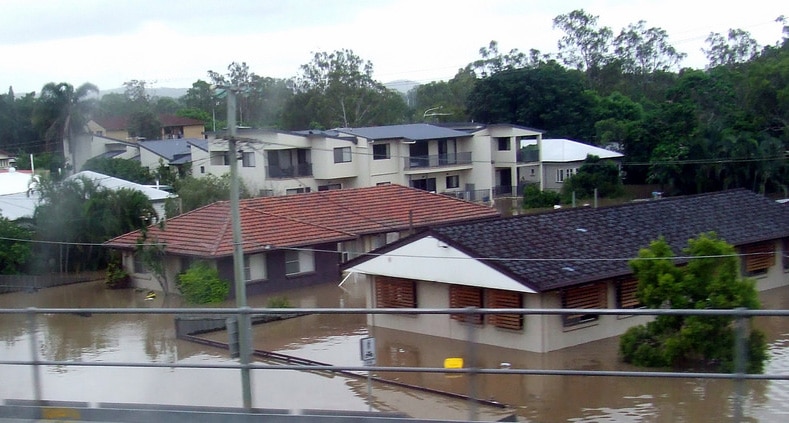
One of the biggest issues for a home is moisture and water damage. It’s one of the main things our inspectors are looking for when performing building and pest inspections, and it’s what you should take seriously in your building report.
Repairing water damage can be quite costly so it’s much better to know the signs so you can either avoid homes with such damage, prevent it in your own home, or at least notice when it starts and put a stop to it.
Causes of Water Damage
- Blocked gutters – can result in backflow of rainwater into the eaves and walls of the house
- Bad or old plumbing – leaks, burst pipes etc.
- Poor drainage – either within the kitchen and bathrooms, or the block of land
- Humidity – homes in humid areas need better sealing and protections against the moisture in the air.
Dangers of Water Damage
Water damage can go on to cause a whole host of problems in your home. The following are just some of the dangers posed by water damage and excess moisture.
Mould – it looks pretty bad, but mould can also be a deadly health risk. Toxic mould spores in the air can flare up allergies, exacerbate asthma, cause skin irritations and infect the throat and lungs. Mould comes about from standing water or dampness, usually as a result of poor drainage, bad ventilation, and/or leaking plumbing.
Structural Damage – ongoing moisture problems and standing water can, over time, damage the structural integrity of your home. When your foundation or decking timbers are affected it compromises the whole home.
Pest Infestations – whether it’s termites, ants, cockroaches, or any other uninvited guests, they all love cool, damp, dark places to make nests. Moisture also makes the timber in your home a food source for termites, leading to further damage and costly treatments and repairs.
Aesthetic Damage – even if it doesn’t destroy your home, water damage can look quite unsightly and drop the value of your home just by its unsightly appearance. Discolouration, damaged paint, buckling timbers and the like can be quite noticeable even before a building inspector visits the home.
Avoiding Water Damage
Obviously you’re better off preventing water damage in your home all together.
Make sure your plumbing, drains and gutters are all clear and in good repair, and get leaks fixed as soon as possible.
Avoid humidity above fifty percent within the home. If you notice condensation on the windows, dampness on your walls and ceilings, or a musty smell throughout the house you may have a humidity problem. Consider improving the ventilation in your home, dehumidifiers, or a reverse cycle air conditioner.
Finally, if you do find a significant amount of water in your home or apparent water damage, especially mould, get it checked by an experienced building inspector. There could be further damage you’re unaware of.
Whether you’re looking to buy a new home, or you’re concerned about your own, contact us on 1300 337 447 to arrange a building inspection, or book online today.
Image courtesy Flickr: David Jackmanson